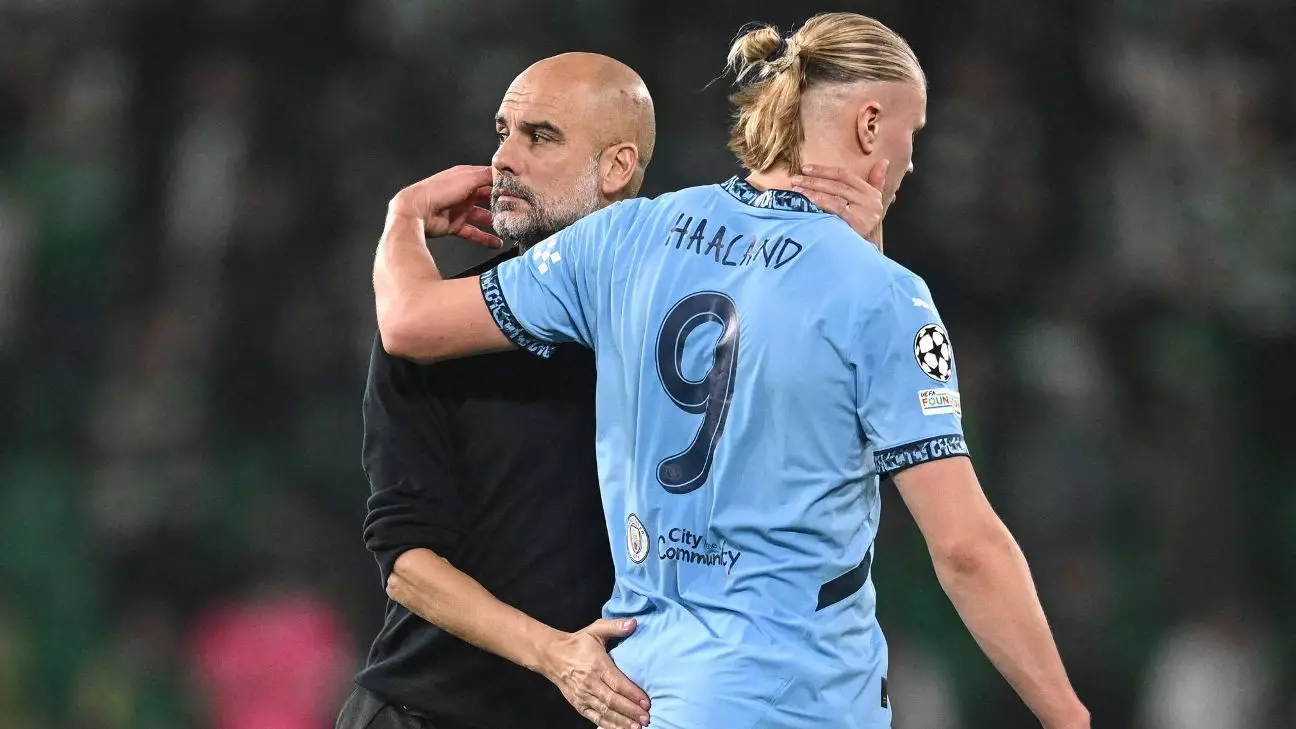In a significant development for Manchester City, manager Pep Guardiola recently signed a two-year contract extension, ensuring his presence at the Etihad Stadium through 2027. This decision, while seemingly straightforward, pales in comparison to the daunting task that lies ahead for the club’s management. With 16 first-team players facing contract expirations in the same timeframe, City finds itself at a crucial crossroads. Star players like Erling Haaland, Kevin De Bruyne, and Jack Grealish are at the forefront of this dilemma, creating a growing cloud of uncertainty over the team’s composition and future direction.
The club’s current situation is further complicated by various off-field issues, including a strongly contested 115 charges related to breaching Premier League financial regulations. While City denies all accusations, the repercussions of the ongoing hearing could precipitate a range of outcomes, from fines and point deductions to potential expulsion from the league. With the club also dealing with a troubling five-game slump, recently punctuated by a dramatic draw with Feyenoord, the urgency of resolving player contracts cannot be overstated.
The uncertainty surrounding the club’s legal battles weighs heavily on the minds of players and their agents. A notable trend has emerged since the announcement of financial charges back in February 2023: apart from a couple of backups, none of the first-team players have renegotiated their contracts, highlighting a hesitance to commit amidst such precarious circumstances. Previous experiences from other clubs, like Liverpool’s approach to key player contracts, serve as a cautionary tale. When pivotal players are not locked into agreements well ahead of contract expiration, departures for free become a distinct possibility.
As City navigates this crucial juncture, it is essential to address not only the immediate needs of players out of contract in 2027—such as Haaland, Rodri, and Phil Foden—but also to focus on those whose contracts are up far sooner. For instance, veterans Ilkay Gündogan and Kevin De Bruyne are both set to leave at the end of the current season. With both approaching the twilight of their careers, the outlook for the club’s midfield depth becomes murky without timely contract negotiations.
The impending changes at City extend beyond player contracts. The upcoming transition in the club’s leadership, particularly the expected replacement of long-standing director of football Txiki Begiristain with Sporting CP’s Hugo Viana, introduces an element of complexity to an already intricate situation. This leadership change can impact strategic decisions regarding player contracts and recruitment. As the club contemplates its future direction, the complexities of expiring contracts, potential departures, and new acquisitions intertwine, painting a complicated picture for the foreseeable future.
The conundrum of renewing contracts amid legal uncertainty drives home the urgency of decisive action. Players like Rodri, Foden, and Ruben Dias represent core components of the team’s vision and success. Securing contract extensions for these critical players within a tight timeline is imperative. However, if the hearing drags into late May, it is hard to envision these stalwart figures making commitments without clarity on the club’s overall future.
Guardiola’s extended contract serves a purpose beyond mere managerial continuity. By anchoring the managerial position, it sends a message of stability to the players during a tempestuous period. History shows that prior contractual agreements within the club were often used to quell speculation and provide assurance. In contrast, the players’ situation is more nuanced. Signing lengthy contracts translates into long-term commitments, presenting greater stakes for all parties involved.
As the dust settles post-Guardiola’s decision, the focus must shift towards forging trust and commitment from key players. Unlike a managerial change, which can be more fluid and subject to varying interpretations of success, player contracts signify a deep-rooted relationship with tangible implications. The missteps taken in players’ negotiations could lead to critical losses and diminish City’s competitive edge in the league.
The onus now lies on Manchester City’s management to navigate these complexities with foresight. Determining who remains a pivotal part of the club’s future while locking in contracts for each player is paramount. As they tread these tumultuous waters, the looming question remains: Can they achieve stability and success both on and off the field in time to safeguard their roster?
Ultimately, the next few months will determine whether Manchester City emerges from this turbulent phase intact or faces a significant overhaul. While expectant eyes continue to monitor Guardiola’s commitment, it is the clarity of the contracts and a strategic approach to player retention that will together shape City’s path forward in an ever-evolving football landscape.

